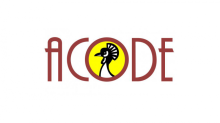Resource information
The need to establish the link between land tenure and food security is increasingly gaining currency as governments and development organizations refocus their effort towards assisting farmers to move away from subsistence farming to commercial agriculture. It is argued that given how land plays a crucial role in the livelihoods of most Africans, food security and poverty reduction cannot be achieved unless issues of access to land, security of tenure and the capacity to use land productively and in a sustainable manner are addressed. This study was conducted in ten districts located in southwestern and eastern Uganda, where customary land tenure systems and agricultural practices vary significantly. The overall objective of the study was to analyse land issues that farmers experience, which could limit efforts to improve agricultural production and hence adversely impact on food security. The study employed both qualitative and quantitative approaches. Data collection methods including household questionnaire surveys, key informant interviews, focus group discussions, Participatory Rural Appraisal (PRA) and document review were employed. A total of 623 farmers participated in the study as respondents, of which 55.7% were females. Results from the study show that 73% of the farmers hold land under customary tenure which is mainly acquired through inheritance and purchase. In addition, 25% of the farmers did not possess any document confirming ownership of land rights while 42% possess an informal purchase agreement. Although these findings point to lack of tenure security, it is surprising that 83% of the farmers felt security of tenure under the prevailing conditions. The study also identified that women do not hold equal rights with men when it comes to making key decisions on land. The study recommends fit-for-purpose land administration tools to address area specific land tenure and food security challenges including security of land tenure. Women's rights on land should be promoted through targeted interventions, given that the Ugandan Constitution and Land policy advocate for equal opportunities for both men and women



